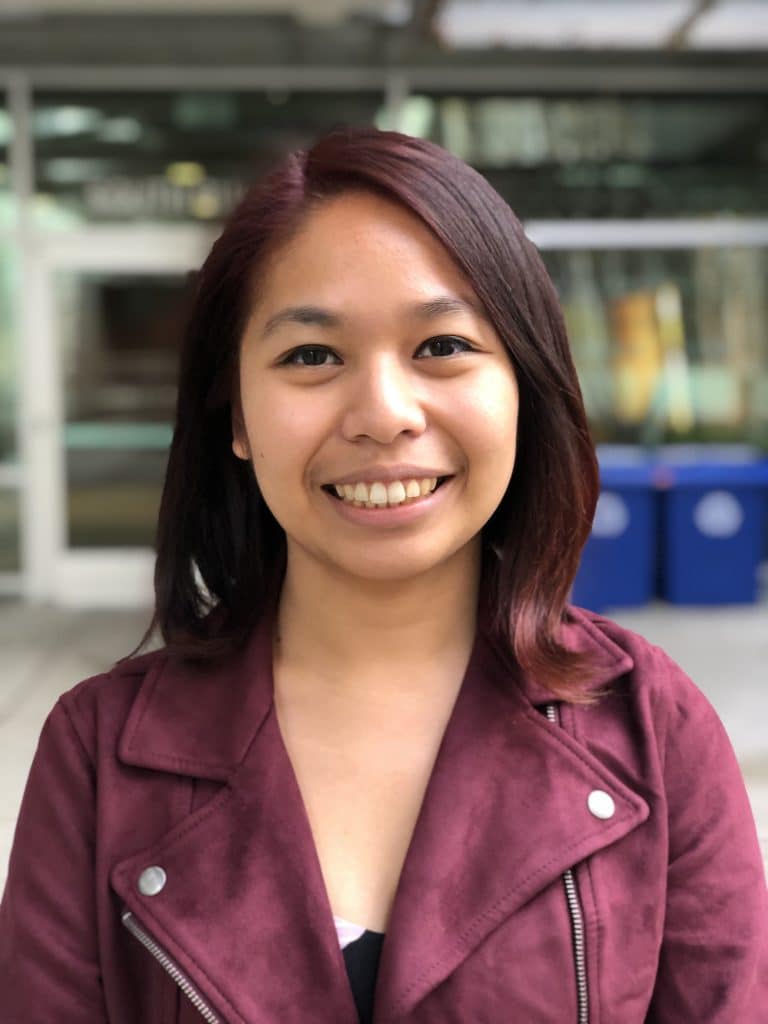
By Dawn Angelicca Barcelona
Applying for fellowships while balancing work, school, and personal responsibilities can be taxing. There’s a lot of work involved in putting together a fellowship application. You’ll have to identify the right opportunities for you, write drafts of your personal statements and research proposals, request letters of recommendation, prepare for interviews, and more. During this busy time, it’s important to learn how to practice self-care so you can put your best foot forward in your applications and daily responsibilities.
During fellowship application season, it’s understandable that you might feel overwhelmed. As you juggle your many tasks and deadlines, practicing self-care strategies and implementing them into your daily routine will help you better manage your stress and complete the many tasks on your plate.
Here are a few self-care tips you can start practicing today as you prepare your application materials and start planning for your future.
5 Self-Care Tips to Get You Through Application Season
1. Look at the Big Picture
Looking ahead at all the steps you need to complete for your fellowship application can be overwhelming, but it doesn’t have to be! In fact, looking ahead and doing some forward-thinking planning can help you break down all of the big things you need to complete into manageable chunks with clear due dates.
What I found helpful when I successfully applied to become a Fulbright English Teaching Assistant was working backward from the application deadline. At the beginning of application season, I wrote down all of my major due dates for the year in my planner. This included exams and campus events, as well as my big Fulbright deadlines, like when to request my letters of recommendation, complete my required health exam, and submit drafts 1, 2, and 3 of my personal statements.
Being able to look at the bigger picture at the start of my application process helped me stay accountable to a timeline. Admittedly, I’m someone who tends to procrastinate, so having things written out and being able to cross each task off of my list and calendar felt satisfying and kept me on track while reducing my anxiety.
2. Take Intentional Breaks
Given how competitive fellowships can be, it’s easy to hyper-fixate on your fellowship application. You may feel pressure to continuously work on perfecting your resume, essays, and interview prep at the expense of other things you need to accomplish each day.
While some amount of pressure can be helpful in pushing yourself forward, too much pressure can lead to burnout, anxiety, and feeling so overwhelmed you may want to give up on applying altogether. You can mitigate these feelings by taking frequent breaks away from your computer or timeboxing your work. I’ve recently adopted the Pomodoro Technique for enhanced productivity. This involves setting a timer and working on a task for 25 minutes, then taking a break for 5 minutes before starting the next round. The 5-minute break should involve something unrelated to your task at hand, and for me, that involves reading a poem or stretching.
It will be helpful to think of a list of quick, easy activities that fill your cup. If you aren’t sure what those are, try these:
- Make a list of 5 things you are grateful for
- Message or call a friend to catch up
- Go outside and take a walk around the block
- Listen to a song that makes you smile
Taking an intentional break just may be the difference between feeling energized for the next round of personal statement edits or feeling burned out for the rest of the day.
3. Remember That You Are Enough
By applying for an international fellowship, you’re taking a big, brave risk! You’re pushing yourself to try something new and taking steps to change your life in a meaningful way. One of the common thoughts that can pop into our minds while we put together fellowship applications is that who we are isn’t enough to win a grant, or that other people deserve the opportunity more than we do. These thoughts ate away at my self-esteem throughout my Fulbright application process, especially since I assumed that my GPA wasn’t high enough to make me a competitive applicant.
I’d suggest having some motivational phrases ready to tell yourself if you start to slip into imposter syndrome. Some of the phrases I often utilized were:
- “There is more to my application than my GPA.”
- “Winning or losing this fellowship does not define who I am.”
- “I have a strong application and I did my best to showcase my potential.”
I found it tough when I felt stuck with my fellowship essays, especially when I heard some feedback that my personal statement did not reveal much about who I am. Hyping myself up allowed me to dig deep and see the unique experience I could bring to the fellowship, which allowed me to ultimately showcase authenticity in my personal statement.
4. Become Attuned to Your Body
When something is off balance for you emotionally or mentally, you will often feel this burden on your body. If you aren’t feeling well physically, that can be a sign of exhaustion, hunger, burnout, or a mental health condition, so it’s important to check in with your body each day. Some ways you can be proactive about taking care of your body can include maintaining daily hygiene, getting enough sleep, eating consistent meals, and exercising.
It can be easy to neglect some of the basics, but starting off your day by brushing your teeth and washing your face can help you get into a routine. I personally tend to forgo making breakfast or lunch when I have a busy day, and by the afternoon I notice I’m feeling frustrated and grumpy. This is often when I realize I haven’t been drinking enough water or that I need to take a break and eat. When I know I’ll have a busy week ahead, I spend some time over the weekend making a big batch of food that I can reheat for dinner or lunch. This can take off the pressure of choosing what to eat, buying ingredients, and cooking every day.
It’s also important to build some time into your schedule to move your body, whether that’s by taking a walk, lifting weights, or dancing to some music you like. This can help ease your anxiety and calm your body during times of high stress.
5. Reach Out for Help When You Need It
Self-care can be a radical act when you’re doing your best to craft a stand-out fellowship application. I personally found it really hard to take breaks from thinking about my next steps and looming deadlines. I sometimes found myself spiraling into questioning whether or not I was worthy of a fellowship.
Self-care during your application process can feel counterintuitive when you know you’re competing against many other applicants for a limited number of spots. Admitting that you may need support in the form of a friend, therapist, or academic coach can be hard, but sometimes you need that extra help to push through, especially if there are tough things going on in your personal life or events on a national or global level that are personally affecting you on top of your application requirements.
Having a community to encourage and rally around you is so important, and chances are other people in your community have been in your shoes and have helpful advice from their own personal experiences.
How To Practice Self-Care When Waiting to Hear Back from Fellowship Opportunities
After you submit your fellowship applications, you can be faced with a potentially long wait time as the fellowship committee makes its selections. Some fellowships stick to a concrete timeline, but others may not have a set date by when you will hear back.
When I was waiting to hear back about my application to the Fulbright English Teaching Assistantship, there were many days I was nervous to check my email, and many of you may feel the same sense of anxiety. I’d suggest creating an email filter with the names of the fellowships you applied for and only checking the filter folder a few times a week to ease the anxiety of thinking each new email could be about your fellowship.
Preparing for the possibility of not winning your grant can be mentally and emotionally taxing. I had to balance my hope of winning the Fulbright Award with the knowledge that I would need to make a backup plan for after graduation in case I didn’t get it.
Keeping your options open and not putting all of your eggs in one basket is wise. Applying to jobs or graduate school is time-intensive, and you may be in a situation where you have to tell a potential employer that you can’t accept a job offer right away since you are waiting to hear back about your fellowship application. Companies want to fill their roles ASAP and might not be able to hold onto an offer for you while you’re waiting. These situations can be stressful, but can also be a good time to get advice from friends, colleagues, and mentors to help you evaluate your options.
If you end up receiving a rejection letter or you are named a finalist but not a Fellow, it’s natural to feel disappointed. Give yourself some time to decompress and be gentle with yourself. You gave it your best shot, and were recognized as one of the strongest applicants! Know that you can always reapply in future years and make your application even stronger the next cycle.
Another helpful tip is to build in time to rest throughout your application process, after you’ve submitted your materials, and while you wait to hear back. When I think of rest, I immediately think of going to sleep or catching up on TV. Sometimes this is a break for me, but other times I don’t feel rejuvenated enough. This is where mindfulness and meditation come in handy. Even taking a few intentional deep breaths and getting a break from screen time makes a world of a difference.
Wherever you are in your application journey, taking time to pause can help you be more productive later on, so think of it as an investment that will give you more energy down the line. You got this!
You got the Fellowship! Now what? Check out 6 Mental Health Tips for Your Fellowship Abroad.
Dawn Angelicca Barcelona (she/her) is a Filipina-American tech recruiter in
© ProFellow 2022, all rights reserved